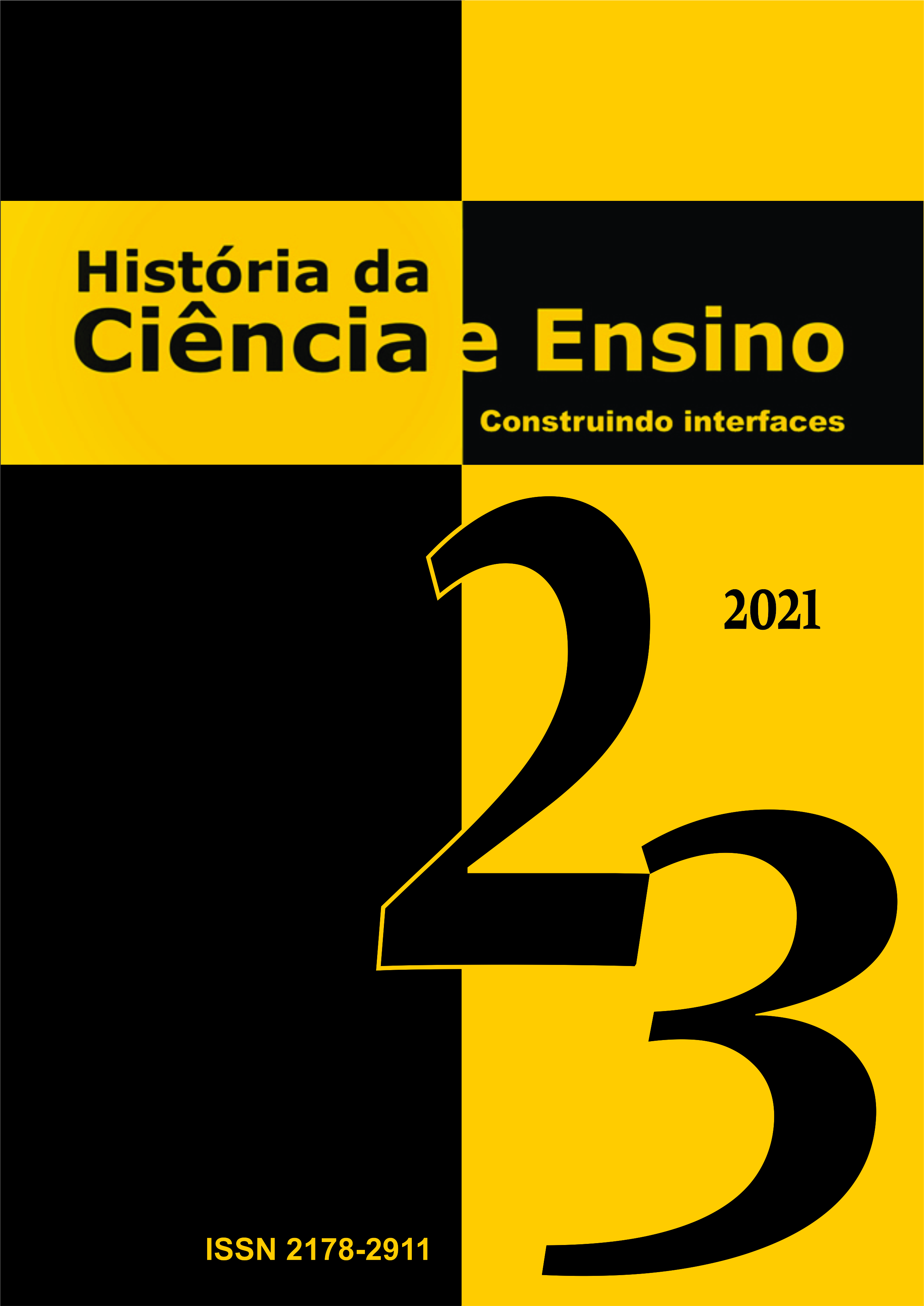Utilização de jogos educativos para a abordagem da História da Ciência: um estado da arte
DOI:
https://doi.org/10.23925/2178-2911.2021v23p131-148Abstract
Resumo
A História da Ciência (HC) figura como uma possibilidade de desconstruir visões estereotipadas e simplistas acerca do que é a ciência e o ser cientista. O trabalho com os jogos aliados à HC permite uma relação entre o lúdico e o educativo, apresentando-se como uma boa estratégia para o diálogo acerca das ciências da natureza. Neste sentido, este artigo consiste em um estado da arte dos trabalhos envolvendo a utilização de jogos educativos para a discussão da HC. Para tal, foram analisados anais de congressos nacionais da área do ensino de ciências e da química, além de dois periódicos nacionais no período de 2009 a 2020. Foram encontrados 18 trabalhos que, após leitura completa dos textos, foram dispostos em 2 categorias: Construção de conhecimentos acerca da Natureza da Ciência por meio da História da Ciência e História da Ciência para veiculação de conteúdo. Sete trabalhos coincidiram com a primeira categoria, e onze com a segunda. Pode-se verificar que os trabalhos se concentram na abordagem da HC para o ensino de conteúdos específicos voltados à educação básica, em especial os temas de modelos atômicos e a tabela periódica (treze jogos eram específicos da química, três da física, um da biologia e outros três apresentavam caráter mais interdisciplinar). Analisaram-se vinte jogos, uma vez que dois dos trabalhos contemplavam a discussão acerca de dois jogos. Destes, seis se classificaram como didáticos, pois se inspiravam em jogos já existentes e treze eram totalmente inéditos, por isso foram elencados como pedagógicos. Um dos jogos não foi categorizado, por ser um jogo já existente. Não foram encontradas publicações sobre a temática em nenhuma das revistas investigadas, apenas nos anais de congresso, tendo sido sete trabalhos apresentados no ENPEC, e os outros onze, no ENEQ. Ademais, os trabalhos abordam as relações existentes com o meio social e político dos avanços científicos e com o(a) cientista, como se espera com as abordagens da HC.
Palavras-chave: História da Ciência, Jogos educativos, Revisão de literatura.
Abstract
The History of Science (HC) appears as a possibility to deconstruct stereotyped and simplistic views about what science is and how is to be a scientist. The work with games allied to HC allows a relation between the playful and the educative, presenting itself as a good strategy for dialogue about the natural sciences. In this way, this article is a state-of-the-art of the works involving the use of educational games for the discussion of HC. To this end, the annals of national congresses in the area of science and chemistry education were analyzed, in addition to two national journals from 2009 to 2020. 18 papers were found which, after reading the full texts, were arranged in 2 categories: Construction of knowledge about the nature of science through the History of Science and History of Science to convey content. Seven works coincided with the first category, and eleven with the second. It can be seen that the works are focused on the HC approach for teaching specific contents focused on basic education, especially the themes of atomic models and the periodic table (thirteen games were specific to chemistry, three to physics, one to biology and three others had a more interdisciplinary character). Twenty games were analyzed, since two of the works contemplated the discussion about two games. Of these, six were classified as didactic, as they were inspired by existing games, thirteen were totally unpublished, so they were listed as pedagogical. One of the games was not categorized, as it is an existing game. No publications on the subject were found in any of the investigated journals, only in the conference proceedings, with seven papers presented at ENPEC, and the other eleven at ENEQ. In addition, the works address the existing relationships with the social and political environment of scientific advances and with the scientist, as expected with HC approaches.
Keywords: History of Science, educational games, Literature revision.


